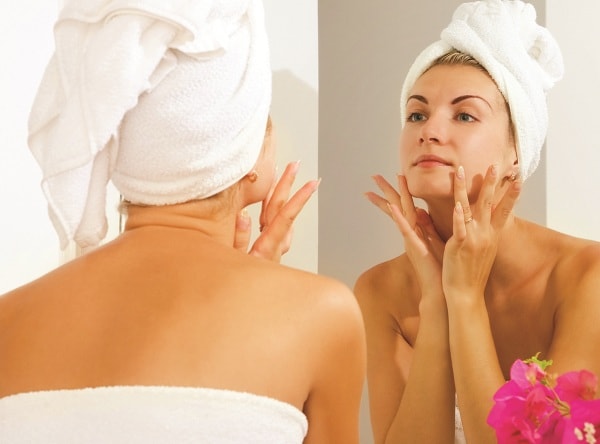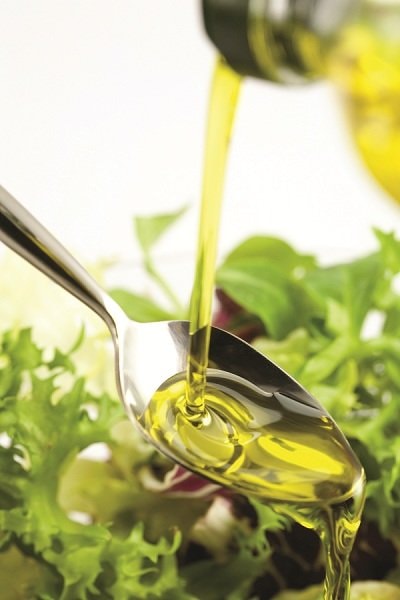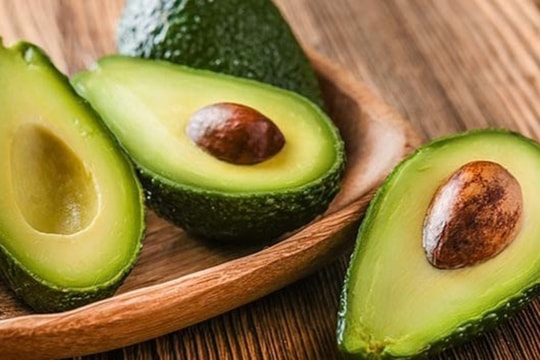Men with Vitamin E deficiency may have testicular atrophy.
Vitamin E is especially beneficial for women because of its ability to rejuvenate the skin, prevent aging and oxidation. In addition, vitamin E also helps enhance men's ability, vitamin E deficiency can cause testicular atrophy. However, do you know how to use and take vitamin E properly?
Helps women have smooth skin
For women, vitamin E plays a very important role not only for beauty but also for health. The full presence of vitamin E in the body helps women have smooth, youthful skin with few wrinkles.
Lack of vitamin E, the skin will be dry, wrinkled, hair will be easy to break and fall out. That is why in cosmetic products for skin and hair, vitamin E is included by manufacturers as a factor to attract the attention of women to increase sales because, as women, who does not want to have shiny hair, beautiful smooth skin, not keeping the mark of age.
For women during pregnancy, vitamin E contributes to the pregnancy process and the development of the fetus. If vitamin E is deficient during pregnancy, it can cause the uterus to be underdeveloped in female fetuses and testicular atrophy in male fetuses. In particular, thanks to its effect of eliminating free radicals in the body, vitamin E can also reduce the rate of miscarriage or premature birth.
 |
| Vitamin E has anti-aging properties, especially skin aging. |
For women in menopause, some studies show that vitamin E is effective in reducing hot flashes and other discomforts such as menstrual disorders. For teenage girls, vitamin E can reduce menstrual cramps.
Which foods contain a lot of vitamin E?
Vitamin E comes in two forms: natural and synthetic. Natural vitamin E is most abundant in vegetable oils, with wheat germ oil at the top of the list, followed by sunflower oil.
In addition, vitamin E is also abundant in sprouts such as bean sprouts, rice sprouts and appears in smaller amounts in foods such as green vegetables, meat, fatty fish, eggs, and milk.
Does daily diet meet the body's vitamin E needs?
The vitamin E requirement for adults is about 15mg per day. If you eat a normal diet with vegetable oils and green vegetables, ensuring enough vitamin E is not difficult.
In special cases such as pregnant women, people with cancer, heart disease, and people with dry skin, vitamin E needs to be increased.
How to eat to best absorb vitamin E?
Vitamin E belongs to the group of fat-soluble vitamins. Vitamin E absorption takes place in the middle part of the small intestine, closely related to the process of fat digestion and requires bile salts and pancreatic lipase to be absorbed at the same time as fats, reaching the circulatory system through the lymphatic system. Therefore, to absorb vitamin E, the diet must have enough fat.
We know that bean sprouts contain a lot of vitamin E, but if we only eat raw bean sprouts, the ability to absorb vitamin E will be very poor. If we mix raw bean sprouts with cooking oil (eaten as a mixed salad), vitamin E will be absorbed more. Moreover, cooking oil itself is also a source of vitamin E, or we can also eat stir-fried bean sprouts, but when cooked, the vitamin E content is lost about 20%.
 |
| With a diet containing vegetable oils and green vegetables, ensuring adequate vitamin E intake is not difficult. |
Should I take vitamin E supplements daily? If so, what should I keep in mind?
Vitamin E is very good for the body, but if abused (using high doses for a long time) with the purpose of maintaining youth and beauty, the antioxidant effect will be eliminated. At that time, vitamin E will act as a substance that supports the activity of free radicals in the body, causing damage to cells.
Some studies have also shown that taking high doses of vitamin E can increase the risk of lung cancer. If high doses of vitamin E are injected into the vein, it can be fatal.
For women, taking vitamin E supplements (multivitamins) every day after age 30 is okay, but should only be used for 1-2 months, then stop for a while before using again.
Taking vitamin E supplements should only be applied to people with dry skin and a diet poor in vitamin E. Especially only for people with diseases such as diabetes, high blood pressure, dyslipidemia, liver disease, kidney failure, cancer, allergies, chronic inflammation and autoimmune diseases... need to supplement vitamin E daily, but not more than 400 IU (international units) per day, and should only be used every other day for 1-2 months, then take a break for a while before using again.
For normal healthy people, the best way to supplement vitamin E is still from food.
Should vitamin E be applied directly to the skin?
Applying vitamin E to the skin can help prevent the harmful effects of UV rays in sunlight. However, applying vitamin E to the skin is only suitable for people with dry, aging skin. For oily skin, applying vitamin E to the face can cause acne.
According to SK&DS
| RELATED NEWS |
|---|


